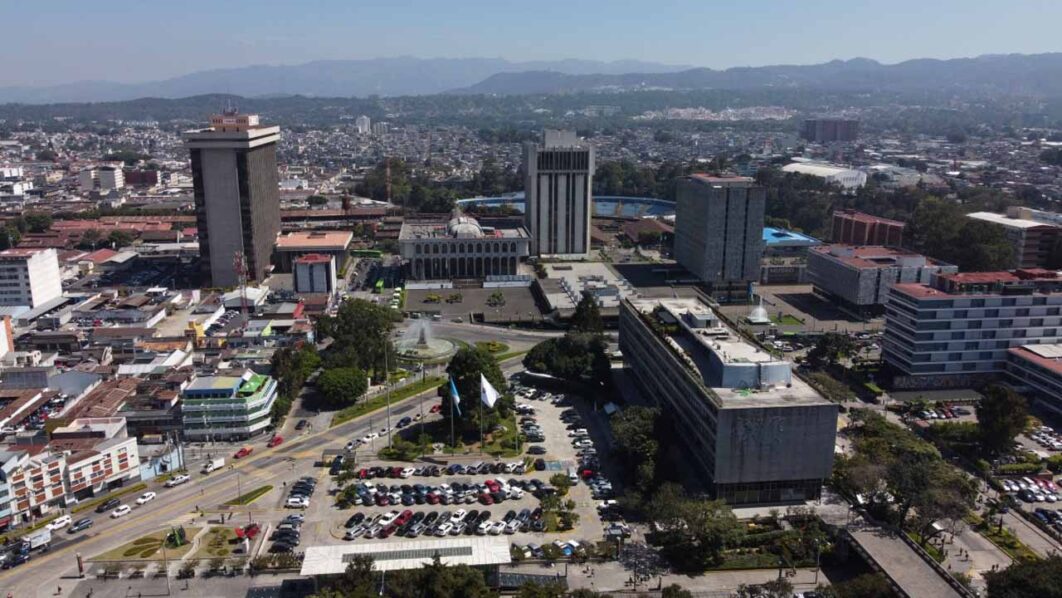
Bernardo Arevalo has survived months of judicial machinations to stop his inauguration Sunday as Guatemala’s new president — the target, according to himself and observers, of a corrupt elite desperate to cling to power.
Since his surprise victory in elections last August, political outsider Arevalo has had to overcome a string of obstacles placed in his way by graft-accused prosecutors closely aligned with the Central American country’s political and economic ruling class.
This week, the 65-year-old lawmaker, ex-diplomat and sociologist insisted nothing can legally stop him ascending to the top office, as he announced a 14-member cabinet to help execute his anti-corruption drive.
Backed by the United States, European Union, Latin American countries and international organizations including the UN, Arevalo is due to replace Alejandro Giammattei — who is accused of propping up attorney general Consuelo Porras, heading the campaign against the newcomer.
Arevalo has repeatedly denounced a “slow-motion coup d’etat” under way ever since he unexpectedly garnered the second-most votes in a first election round last June.
“Of course they will continue making attempts” to the last minute to stop him, Arevalo said Monday.
Organization of American States secretary general Luis Almargo on Thursday urged Guatemalan institutions to resist “the boycott and conspiracy actions against democracy” of the prosecutor’s office.
Arevalo “must take office this Sunday as constitutional president … of the country,” he wrote.
Guatemala’s highest court issued an order Thursday to shield vice president-elect Karin Herrera from arrest amid rumors she could be detained in a move that would derail the inauguration.
– Election result ‘unchangeable’ –
Arevalo is the son of reformist Juan Jose Arevalo, who in 1945 became Guatemala’s first democratically-elected president after decades of dictatorship.
The younger Arevalo made himself unpopular by promising to clamp down on deep-rooted corruption in government and further afield.
For the past nearly five months, attempts have been made to overturn the election results and, more recently, to strip Arevalo of immunity from prosecution as an elected official.
His Semilla (Seed) party has had its registration suspended on fraud allegations widely seen as trumped up.
Semilla has also been the target of several raids, as has the Supreme Electoral Tribunal (TSE), which has declared Arevalo’s election: “validated, formalized and unchangeable.”
On Thursday, a court ordered the arrest of four electoral judges.
Porras, senior prosecutor Rafael Curruchiche and Judge Fredy Orellana have been at the forefront of the campaign against Arevalo and his team. All three are listed as corrupt and undemocratic by the US Justice Department.
– Arrested for ‘disobedience’ –
Guatemala is one of Latin America’s poorest and most unequal countries, a reality that has, along with high rates of violent crime, compelled hundreds of thousands to risk the perilous migrant journey to the United States in hopes of a better life.
Observer groups have also expressed increasing concern over the Giammattei government cracking down on rights defenders, prosecutors and journalists.
The moves against Arevalo and his party have ignited mass protests by Guatemalans demanding the resignation of Porras and her team.
On Thursday, Guatemalan police detained a former interior minister for “disobedience” after allegedly refusing to clear dozens of protesters’ roadblocks last year.
The challenges facing Arevalo as president will be no less difficult.
To start with, he inherits an attorney general who “attacked and criminalized” him and “threatened democracy to a degree we had not thought possible,” said Edie Cux of Citizen Action, a local version of Transparency International.
“They will have the president ambushed. At the slightest misstep they will want to lift his immunity… and remove him,” added her colleague Manfrendo Marroquin.
Arevalo himself has acknowledged there would be “difficulties, since these political-criminal elites, at least for a time, will continue to be entrenched in some branches of the State.”
The new president would also have to deal with a deeply-fragmented Congress that could hamper his attempts deliver change to key support groups: the youth and Indigenous people — historically marginalized though they represent 40 percent of the country’s 17.8 million population.
“He will have to address their concerns. But you cannot expect him to come with a magic wand. His most important and urgent task is rebuilding democracy,” former Human Rights Commissioner Jordan Rodas told AFP.






